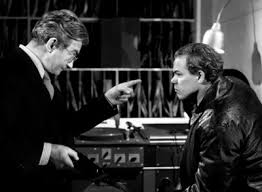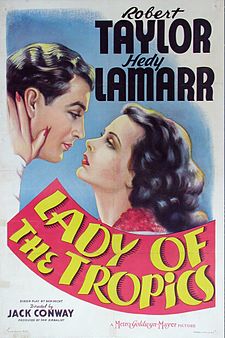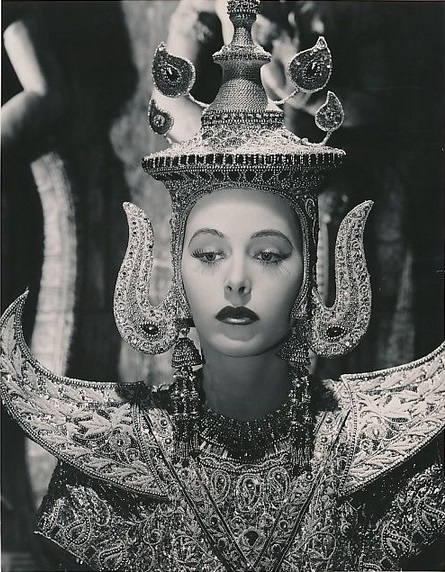
When fellow classic film fan and blogger, Cinemaven, announced she would be hosting a blogathon and also mentioned how she herself hadn’t been blogging in a while, I decided that yes, I’d love to join in her blogathon as I, too, hadn’t been blogging in several years! Life just got really busy with working full-time again, so blogging went on the back burner, way back!!
Cinemaven decided that her blogathon topic would be “For the Umpteenth Time”. What film is one that classic film fans can watch over and over and over again, for the umpteenth time, and not get tired of the film? For me, it’s the 1939 classic western, Stagecoach, directed by John Ford. The film that finally turned journeyman actor John Wayne into a star.
About 5 months back, my youngest, 18 years old, told me that since he was going to be going to community college and living at home, he wanted to start watching classic films with me, to get to know the genre. He said he would really like to see classic westerns. Oh, I was so happy to hear this info! Friday nights became our “Classic Movie Night” and the first film we viewed was Stagecoach. Another one of my son’s happened to be visiting and he also agreed to watch the film with us. “Man, John Wayne was young!” My older son’s reaction made me chuckle. Director Ford’s intro to Wayne’s character in the movie is great. The audience hears Wayne’s Ringo Kid call out, “Hey!”, for the stagecoach to stop, as the camera zooms in fast to show The Ringo Kid holding his saddle with one hand and doing a fast move with his rifle with his other hand. Quite the genius way to introduce the main character of a film!
Ford’s introduction of Wayne’s Ringo Kid is just one of the umpteenth reasons I’ll watch Stagecoach over and over again. The passengers on this 1880 road trip are all very interesting. Several of them have something to hide about themselves. Mr. Peacock is perhaps the most normal of the passengers, a whiskey salesman with a wife and a passel of kids back in Kansas City. Doc Boone, the man with medical ability but he loves liquor too much; it’s funny when he sits next to Mr. Peacock and discovers the man has whiskey samples in his big case! Mrs. Lucy Mallory, the genteel Southern lady on her way west to meet up with her husband who is in the calvary and she is pregnant; the other passengers don’t know that fact. Hatfield, also a Southerner and a professional gambler, who recalls serving with Mrs. Mallory’s father in the Confederate Army and decides to keep a protective eye on her for the duration of the arduous trip. Dallas, the prostitute, freshly kicked out of town by a group of upright women. Mr. Gatewood, the pompous banker who has embezzled money from the bank he was in charge of and is trying to get out of town. The Ringo Kid, a young prisoner who has broken out of the territorial prison to get revenge on Luke Plummer as word has reached Ringo that Plummer has killed Ringo’s father and brother. Driving this stagecoach is Buck and Marshall Curley Wilcox has decided to ride shotgun, seated next to Buck, just in case Ringo tries to catch a ride to Lordsburg, NM, where Plummer is reported to be living.
The cast is an excellent one, and all gave such wonderful performances in their roles: character actors Donald Meek(Peacock), Thomas Mitchell(Doc Boone), Andy Devine(Buck), George Bancroft(Marshall Wilcox), Burton Churchill(banker Gatewood), and John Carradine(Hatfield). Louise Platt as Mrs. Mallory and Claire Trevor as Dallas, bring the right notes to their portrayals of the moral woman and the immoral woman.
Monument Valley, on the Arizona/ Utah border, was filmed for much of the background scenes for Stagecoach and it was the first time Ford had used the valley as a film location and it wouldn’t be his last choice for a western’s location. Cinematographer Bert Glennon did a marvelous job capturing the outdoor beauties of the valley. His efforts garnered him a nomination at the 1940 Academy Awards for Best Black and White Cinematography. Stagecoach was also nominated for: Art Direction, Best Director, Film Editing, and Outstanding Production. Stagecoach did win Best Supporting Actor, Thomas Mitchell as Doc Boone, and Music-Scoring for Richard Hageman, Frank Harling, John Leipold, and Leo Shuken.
The next time I see that Stagecoach is airing I will tune in to watch the intreprid travelers from Tonto, AZ Territory, make their way to Lordsburg, NM, despite the dreaded news that Geronimo and his Apache warriors are on the warpath. I will also watch for the umpteenth time to study the bits of morality play revealed in the plot: how the immoral woman deserves mercy and grace from her fellow travelers, the comeuppance that the banker deserves, Ringo Kid’s true character shining through as he treats all around him politely and fair. I especially like the message that starting over with new chances can happen. Stagecoach was one of director John Ford’s masterpieces, and one I will watch for the umpteenth time!


Be sure to visit Cinemaven’s site via this link, in order to read other great posts written by fellow classic film fans. https://cinemavensessaysfromthecouch.wordpress.com/2022/01/18/for-the-umpteenth-time-blogathon/



























































You must be logged in to post a comment.